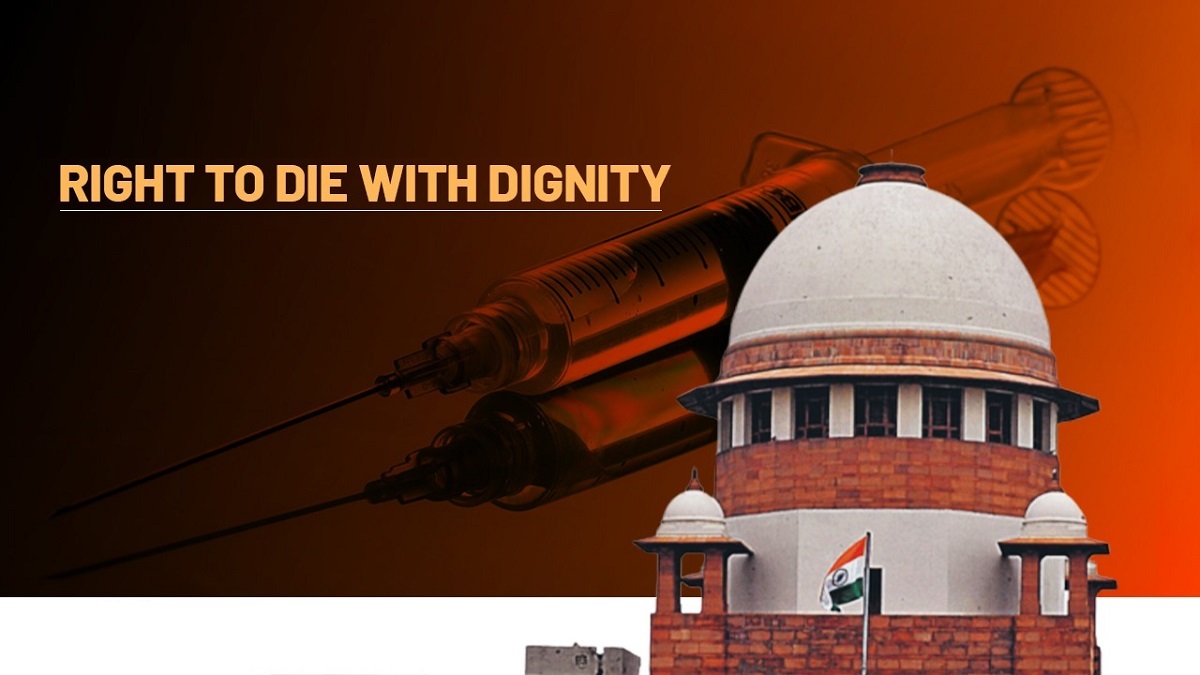Maharashtra has become the first state in India to implement the Supreme Court’s groundbreaking directive on “Right to Die” with Dignity, passed earlier this year. This landmark decision empowers terminally ill patients to make informed choices about their end-of-life care, including the option to withdraw life support.
The state’s public health department issued an order to uphold the Supreme Court’s judgment, passed earlier this year, which empowers patients with incurable diseases to make end-of-life decisions that align with their personal wishes and dignity.
This historic move is expected to benefit countless families by allowing patients to make informed, autonomous decisions about how they wish to spend their final days, free from unnecessary suffering. The Right to Die with Dignity initiative will especially assist those with terminal conditions or diseases that cannot be treated or reversed, ensuring that their rights to dignity and self-determination are respected during the final stages of life.
PMC Approves ₹1,200 Crore for Rapid Infrastructure Development in Pune
Key Features of the Implementation:
Medical Boards at District Level: In line with the Supreme Court’s guidelines, Maharashtra will establish primary and secondary medical boards at the district level. These boards will be responsible for facilitating the process of creating and honoring living wills, ensuring ethical decision-making and respecting patients’ rights.
Uniform Implementation Across Hospitals: Hospitals under the state’s medical education department will be required to comply with the new directive. This will ensure a consistent approach to the implementation of the Supreme Court’s ruling throughout Maharashtra.
Legal Immunity for Healthcare Professionals: To address concerns about potential legal implications, the Supreme Court’s guidelines also provide legal immunity to medical professionals and authorities who execute living wills, ensuring ethical and timely decisions are made without fear of legal repercussions.
Dr. RB Pawar, Deputy Director of Health Services, stated, “The formation of these medical boards will make the process easier and more accessible for patients. The boards will help ensure that living wills are processed in a timely and ethical manner, respecting the wishes of those suffering from terminal conditions.”
Dr. Nagnath Yempalle, Civil Surgeon of Pune district, praised the initiative, calling it a compassionate reform that will provide terminally ill patients with the autonomy to decide how they wish to end their journey. “This is a historic step that empowers patients, respects their dignity, and alleviates prolonged suffering,” he said.
Dr. Kapil Zirpe, Past President of the Indian Society of Critical Care Medicine, also lauded the decision, calling it a major victory for patient rights. He highlighted the need for faster decision-making, suggesting that the current 48-hour decision timeframe should be reduced to 24 hours to minimize unnecessary suffering.
सतीश वाघ हत्याकांड: पत्नी मोहिनी वाघ ने रची थी हत्या की साजिश
Scope and Impact of the ‘Right to Die with Dignity’ Directive:
This monumental step applies not only to patients in intensive care units (ICUs) or those on life support but also to individuals with incurable diseases, those receiving palliative care, and patients who have lost hope of recovery. The directive ensures that patients can make living wills, a legally recognized document that outlines their wishes regarding end-of-life care, including the withdrawal of life support.
The Supreme Court’s decision marks a significant turning point for patient autonomy in India, offering terminally ill individuals the right to a dignified death. As Dr. Zirpe concluded, “This is a step toward greater respect for human dignity in the final stages of life.”


